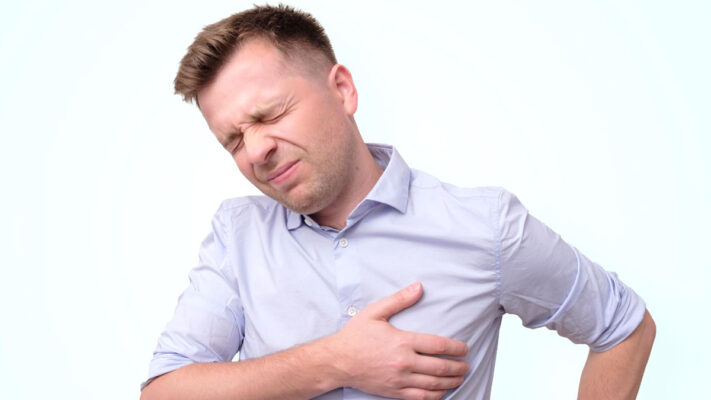Heart & Blood Pressure
What Are Causes And Symptoms Of High Blood Pressure?
What Is High Blood Pressure (hypertension)?
High blood pressure, also called hypertension, is blood pressure that is higher than normal. Your blood pressure changes throughout the day based on your activities. Having measures consistently above normal may result in a diagnosis of pressure (or hypertension).
The higher your pressure levels, the more risk you have for other health problems, such as heart disease, heart attack, and stroke.
Your health care team can diagnose high and make treatment decisions by reviewing your systolic and diastolic blood levels and comparing them to levels found in certain guidelines.
The guidelines used to diagnose pressure may differ from health care professional to health care professional:
- Some health care professionals diagnose patients with pressure if their blood is consistently 140/90 mm Hg or higher.2 This limit is based on a guideline released in 2003, as seen in the table below.
- Other health care professionals diagnose patients with high pressure if their pressure is consistently 130/80 mm Hg or higher.1 This limit is based on a guideline released in 2017, as seen in the table below.
If you are diagnosed with high blood pressure, talk with your health care team about your pressure levels and how these levels affect your treatment plan.
What are the signs and symptoms of high blood pressure?
Pressure usually has no warning signs or symptoms, and many people do not know they have it. Measuring your pressure is the only way to know whether you have pressure.
What causes high blood pressure?
Pressure usually develops over time. It can happen because of unhealthy lifestyle choices, such as not getting enough regular physical activity. Certain health conditions, such as diabetes and having obesity, can also increase the risk for developing pressure. High pressure can also happen during pregnancy.
What problems does high blood pressure cause?
Blood pressure can damage your health in many ways. It can seriously hurt important organs like your heart, brain, kidneys, and eyes.
The good news is that, in most cases, you can manage your pressure to lower your risk for serious health problems.
Heart Attack and Heart Disease
Pressure can damage your arteries by making them less elastic, which decreases the flow of and oxygen to your heart and leads to heart disease. In addition, decreased blood flow to the heart can cause: Chest pain, also called angina.
Heart attack, which happens when the blood supply to your heart is blocked and heart muscle begins to die without enough oxygen.
The longer the blood flow is blocked, the greater the damage to the heart. Heart failure, a condition that means your heart can’t pump enough blood and oxygen to your other organs.
Stroke and Brain Problems
It can cause the arteries that supply blood and oxygen to the brain to burst or be blocked, causing a stroke. Brain cells die during a stroke because they do not get enough oxygen. Stroke can cause serious disabilities in speech, movement, and other basic activities. A stroke can also kill you.
Having high blood pressure, especially in midlife, is linked to having poorer cognitive function and dementia later in life. Learn more about the link between pressure and dementia from the National Institutes of Health’s Mind Your Risks®external icon campaign.
Kidney Disease
Adults with diabetes, pressure, or both have a higher risk of developing chronic kidney disease than those without these conditions.
How do I know if I have high blood pressure?
There’s only one way to know if you have pressure: Have a doctor or other health professional measure it. Measuring your pressure is quick and painless.
Talk with your health care team about regularly measuring your blood pressure at home, also called self-measured blood pressure (SMBP) monitoring.
High blood pressure is called the “silent killer” because it usually has no warning signs or symptoms, and many people do not know they have it.
What can I do to prevent or manage high blood pressure?
Many people with pressure can lower their blood pressure into a healthy range or keep their numbers in a healthy range by making lifestyle changes. Talk with your health care team about
- Getting at least 150 minutes of physical activity each week (about 30 minutes a day, 5 days a week)
- Not smoking
- Eating a healthy diet, including limiting sodium (salt) and alcohol
- Keeping a healthy weight
- Managing stress
Learn more about ways to manage and prevent high blood pressure.
In addition to making positive lifestyle changes, some people with pressure need to take medicine to manage their pressure. Learn more about medicines for high blood pressure.
Talk with your health care team right away if you think you have pressure or if you’ve been told you have pressure but do not have it under control.
By taking action to lower your pressure, you can help protect yourself against heart disease and stroke, also sometimes called cardiovascular disease (CVD).
Causes
There are two types of high blood pressure.
Primary (essential) hypertension
For most adults, there’s no identifiable cause of high pressure. This type of high blood pressure, called primary (essential) hypertension, tends to develop gradually over many years.
Secondary hypertension
Some people have high pressure caused by an underlying condition. This type of high blood pressure, called secondary hypertension, tends to appear suddenly and cause higher pressure than does primary hypertension. Various conditions and medications can lead to secondary hypertension, including:
- Obstructive sleep apnea
- Kidney disease
- Adrenal gland tumors
- Thyroid problems
- Certain defects you’re born with (congenital) in blood vessels
- Certain medications, such as birth control pills, cold remedies, decongestants, over-the-counter pain relievers and some
- prescription drugs
- Illegal drugs, such as cocaine and amphetamines
Risk factors
High blood pressure has many risk factors, including:
Age
The risk of high blood pressure increases as you age. Until about age 64, high blood pressure is more common in men. Women are more likely to develop pressure after age 65.
Race
High pressure is particularly common among people of African heritage, often developing at an earlier age than it does in whites. Serious complications, such as stroke, heart attack and kidney failure, also are more common in people of African heritage.
Family history
High blood pressure tends to run in families.
Being overweight or obese
The more you weigh, the more blood you need to supply oxygen and nutrients to your tissues. As the amount of flow through your vessels increases, so does the pressure on your artery walls.
Not being physically active
People who are inactive tend to have higher heart rates. The higher your heart rate, the harder your heart must work with each contraction and the stronger the force on your arteries. Lack of physical activity also increases the risk of being overweight.
Stress
High levels of stress can lead to a temporary increase in pressure. Stress-related habits such as eating more, using tobacco or drinking alcohol can lead to further increases in pressure.
Using tobacco
Not only does smoking or chewing tobacco immediately raise your blood pressure temporarily, but the chemicals in tobacco can damage the lining of your artery walls. This can cause your arteries to narrow and increase your risk of heart disease. Secondhand smoke also can increase your heart disease risk.
Too much salt (sodium) in your diet
It Too much sodium in your diet can cause your body to retain fluid, which increases blood pressure.
Too little potassium in your diet
Potassium helps balance the amount of sodium in your cells. A proper balance of potassium is critical for good heart health. If you don’t get enough potassium in your diet, or you lose too much potassium due to dehydration or other health conditions, sodium can build up in your blood.
Drinking too much alcohol
Over time, heavy drinking can damage your heart. Having more than one drink a day for women and more than two drinks a day for men may affect your pressure.
If you drink alcohol, do so in moderation. For healthy adults, that means up to one drink a day for women and two drinks a day for men. One drink equals 12 ounces of beer, 5 ounces of wine or 1.5 ounces of 80-proof liquor.
Certain chronic conditions
Certain chronic conditions also may increase your risk of pressure, including kidney disease, diabetes and sleep apnea.
Sometimes pregnancy contributes to high blood pressure as well.
Read more:
ambrican 5 mg
amlopres at 25
angizem 60 mg






The section on symptoms was really helpful, especially since high blood pressure can be asymptomatic in many cases. Learning about the subtle signs to watch out for, like frequent headaches and vision problems, is invaluable for early detection.
This article provides a comprehensive overview of high blood pressure causes and symptoms. It’s crucial to understand these to maintain good health.
This article provides a comprehensive overview of the causes and symptoms of high blood pressure. It’s great to see such detailed information laid out clearly.
I always thought high blood pressure was just about too much salt, but this article showed me there’s a whole lot more to it! Thanks for the eye-opener!
Overall, a well-written and informative article. I’ll be sure to share it with friends and family who may benefit from learning more about high blood pressure and how to keep it in check.
This article touches on the dangers of untreated high blood pressure, but I think it could benefit from expanding on the potential complications.
This article provided a comprehensive overview of the causes and symptoms of high blood pressure. I appreciate how it’s broken down into manageable sections for easy understanding.
This article provides a comprehensive overview of the causes and symptoms of high blood pressure and heart disease. It’s crucial to understand these factors to take proactive steps towards maintaining heart health.
Thanks for outlining the causes and symptoms of high blood pressure! It’s important to be aware of these signs and factors to take necessary steps for prevention and management. Great article!
Great overview of the causes and symptoms of high blood pressure! It’s important to understand these to prevent and manage hypertension. Your explanation was really clear and informative. Looking forward to more articles like this!
This article was a great reminder to pay attention to my overall health, not just when I’m feeling unwell. Prevention really is key when it comes to managing high blood pressure.
Hey there! Thanks for shedding light on such an important topic. High blood pressure is no joke, and it’s crucial to understand its causes and symptoms.
Thanks for sharing this informative article. High blood pressure is such a common issue, and it’s great to see the causes and symptoms laid out clearly like this.
This article made me realize I should probably get my blood pressure checked more often. Thanks for the wake-up call.
Thanks for breaking down the causes and symptoms of high blood pressure. It’s so important to understand these things to stay healthy. I didn’t realize stress could play such a big role! Looking forward to more insights like this.
Hey there! Thanks for the informative article. It really shed light on the causes and symptoms of high blood pressure in a clear way. I never knew stress could play such a big role! Looking forward to more health tips like these.
This article on high blood pressure causes and symptoms was super informative. I never realized stress and diet could impact it so much. Definitely going to watch my salt intake from now on! Thanks for breaking it down in such an easy-to-understand way.
The section on lifestyle factors was very informative. It would be helpful to learn more about how regular exercise influences blood pressure over time.
I’ve found support in online communities dealing with high blood pressure. We share tips and encouragement.
High blood pressure: Not just a number, but a call for healthier choices and occasional deep breaths. 🌿💨 #BreatheEasy
High blood pressure: because life’s too short for hypertension drama. Stay cool, stay active, and keep those numbers in check!